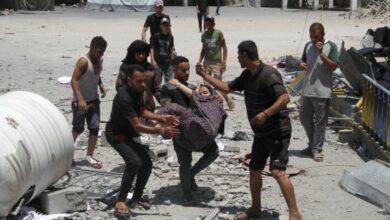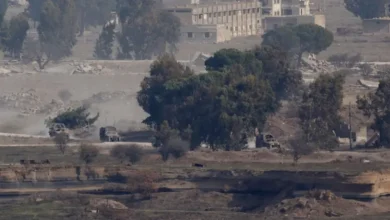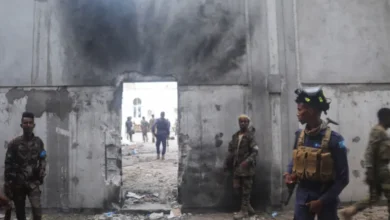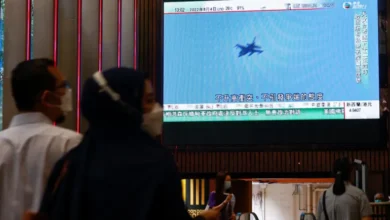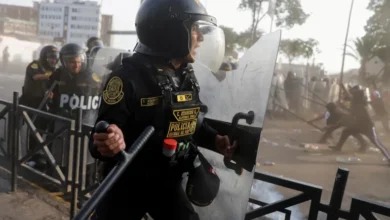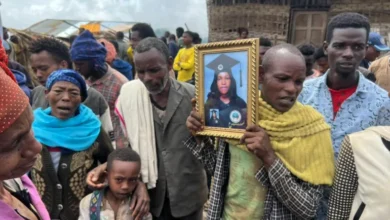Watching the watchdogs: Israel’s siege, bombs drown out its PR stunts
Rami G Khouri
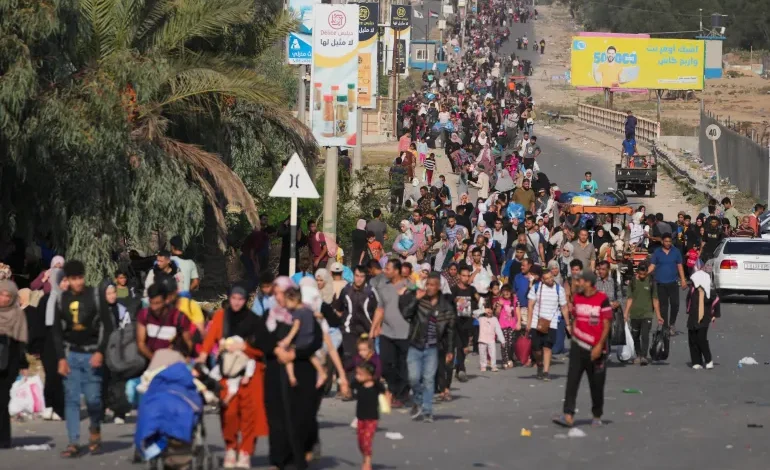
Rami G Khouri
There is a problem with Israel’s new propaganda and PR techniques that aim to burnish its military’s image in the West as one of the world’s most “moral armies”. The problem is that the world sees the inhuman severity and scale of Israel’s killing, starvation, and siege of Palestinian civilians on TV and social media, which has an impact that outstrips its PR capabilities. Even its most ardent supporters, like the United States, now call for a “humanitarian pause” to allow ravaged Palestinian civilians to access life-sustaining essentials like food, water, and medicine.
As Israel keeps attacking hospitals, schools that shelter women and children, and the few remaining water tanks and bakeries, its propaganda includes “warning” civilians in northern Gaza to vacate their homes and neighbourhoods before it bombs them. On October 13, the army dropped leaflets and sent phone messages to the 1.1 million inhabitants in and around Gaza City, giving them 24 hours to leave for the south. Otherwise, the leaflets said, they could be considered “accomplices in a terrorist organisation”. It repeated the warning several times since then, but many Palestinians did not evacuate.
Israel says its warning aims to minimise risk to civilians. Such claims are widely discounted by anyone who follows these conflicts, but they seem to play well to Western audiences (which may be why some leaflets are in English as well as Arabic). Yet this amateurish public relations stunt is belied by the fact that most Israeli missile attacks are not preceded by warnings. That may be one reason why an average of nearly 1,000 Palestinians are killed or injured every day, of whom nearly half are children – and half of Gaza’s population of 2.2 million has been internally displaced.
Israel’s forcing civilians to leave their homes could well be a war crime, according to Amnesty International representative Saleh Higazi, who noted after the flyers started to be dropped on Gaza in October: “Deliberate attacks on civilians and civilian property and infrastructure are war crimes, as are disproportionate attacks. The International Criminal Court has an active investigation into the situation in Palestine and should urgently investigate these attacks as war crimes.”
“Israel’s genocidal intent is clear,” Rutgers University law professor Noura Erekat told me in an interview this week. “Any ‘warnings’ are meaningless and inadequate, because it’s clear that the aim is to drive the Palestinians out of Gaza, or force them into its southernmost region.”
These “warnings” are not credible efforts to reduce the number of civilian deaths, for many reasons:
- Israel remains the “occupying power” in Gaza, despite its 2005 withdrawal, because it still exercises key elements of authority over the Strip as it maintains total control of its borders. The use of force by a state is only allowed by international law and conventions in proportion to the force used against it, and international law also prohibits bombing occupied lands.
- The Fourth Geneva Convention requires the occupying power to ensure the food and medical needs of the civilian population under its occupation. Israel does exactly the opposite.
- If Israel really wanted to kill or capture individual Hamas leaders, it has many other options than collapsing entire neighbourhoods on their inhabitants.
- If Israel really wanted to safeguard civilians, it would direct them to safe roads that lead to safe areas, rather than killing them as they try to flee south.
- No safe places exist in all of Gaza, so asking people to flee for safety is a cruel hoax.
- Thousands of civilians are unable to leave for the south even if they wanted to, due to their physical condition or their status in hospitals or schools turned into shelters.
- Considering those who refuse to leave their homes, hospitals, or shelters as accomplices to terrorism is a form of collective punishment that is prohibited by international law.
- Even if Israel warns civilians to move, it does not have the right to attack them. Omar Shakir, the Israel and Palestine director for Human Rights Watch, told The New York Times recently: “Many who left found that they were still in the line of fire … Giving warning does not absolve parties from the requirement to protect civilians.”
Amnesty International noted in 2014, after examining Israeli attacks against alleged military targets within civilian areas of Gaza: “In those cases where Amnesty International has been able to determine the possible intended target, it has found either that it was not in fact a military objective, that the devastating toll on civilians and civilian property was out of all proportion to any military advantage from the attack and/or that Israel failed to take necessary precautions to minimize harm to civilians and damage to civilian objects.”
Israel’s charade of advising residents in Gaza to leave their homes for their safety looks to informed analysts like a sign of Israel’s intent to empty all or most of Gaza by driving its residents into Sinai or elsewhere – otherwise known as ethnic cleansing, even genocide. Palestinians see in this a gruesome repeat of their 1948 Nakba which saw half the Palestinian population become permanent refugees.
Lex Takkenberg, who for decades was UNRWA’s general counsel and chief of ethics and is now a senior adviser to the NGO Arab Renaissance for Development and Democracy, said in an interview, “Beyond revenge and trying to destroy Hamas, the Israeli government sees a golden opportunity to rid itself of Gaza once and for all.
“Israel cannot easily pursue such ethnic cleansing and genocidal goals while the world watches the immense suffering of Palestinian civilians. They might need, with US backing, a humanitarian pretext to push many or all Gazans into Sinai. Or they keep creating panic, as they did in 1948, this time by cutting all communications and depriving Gazans of food, water, or medicine, while the bombings continue. This forces desperate and fearful people to move elsewhere to survive.”

